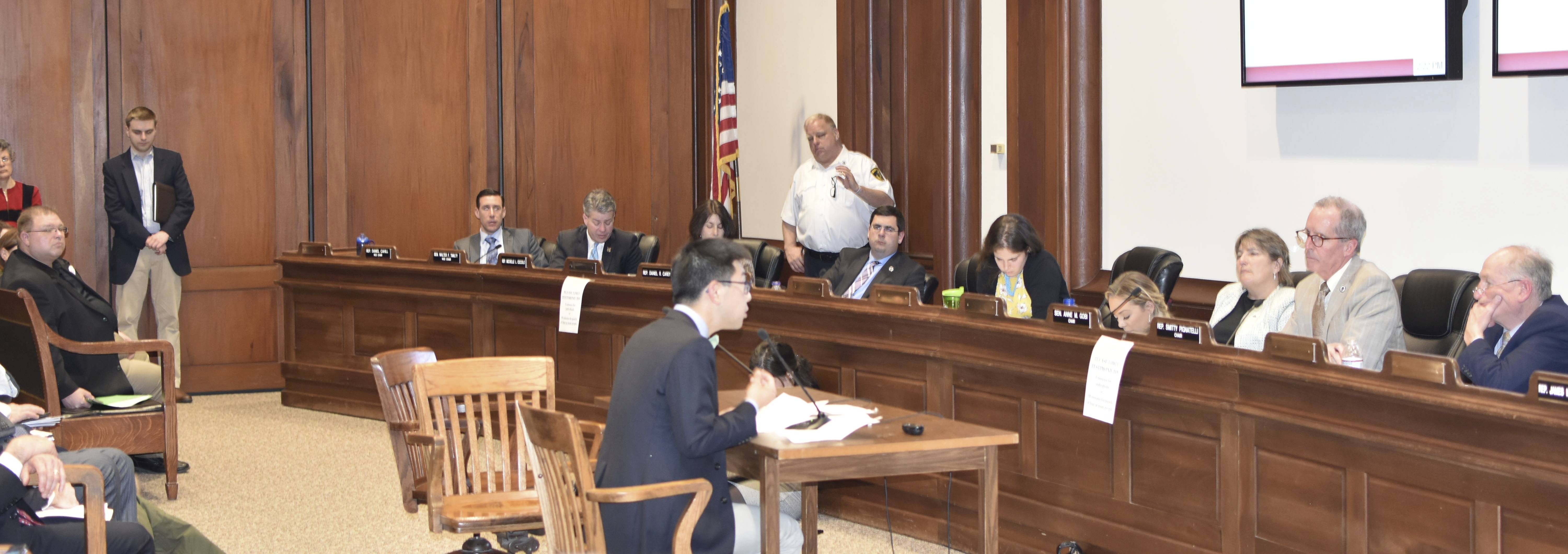
On 2 April 2019, the Surfrider Foundation MA Chapter provided written and oral testimony to the Joint Committee on Environment, Natural Resources, and Agriculture, in support of An Act Reducing Plastic Bag Pollution (H.771/S.462).
A copy of the written testimony can be found here.
Below are notes from the 3-minute oral testimony given by the chapter Vice-Chair and Campaigns Coordinator, focusing on the Surfrider mission and the need for a bag charge as a policy tool to promote reusable bags as part of a sound environmental policy.
Chair Gobi, Chair Pignatelli, Members of the Committee:
I am the volunteer Vice-chair and Campaigns Coordinator for the Surfrider Foundation in Massachusetts, and I am here to support H.771 and S.462 An Act Reducing Plastic Bag Pollution.
Surfrider is a national organization whose mission is to protect and enjoy the world’s ocean, waves, beaches. I speak on behalf of our thousands of members and supporters in Massachusetts, as well as the broader coastal recreation and tourism industry.
We ask you to support the bag bills, with the charges on paper and reusable bags intact because in addition to my day job as a scientist, I am a sailor, diver, and beachgoer. And like anyone else who spends time on the water, I have personally witnessed the harms of plastic bag pollution on, beneath, and near the ocean that we so dearly love and need to preserve life on this planet.
This committee has heard many of this facts and figures, but if you are not yet fully convinced of the plastic problem, please let me know, I will personally host you at one of the beach cleanups that our Surfrider chapter regularly runs in this area, so that you can see it for yourself.
For decades, Surfrider has worked to reduce single-use plastic pollution all across this country, including right here in MA. One of the most necessary and indispensable features of these bills is the minimum bag charge to be retained by the retailer.
Bag policy is often framed as a choice between paper or plastic, when in fact the more important distinction, by far, is that between reusable and disposable. Our experience proves that just banning plastic bags can have the unintended consequence of shifting consumers from one disposable item to another. We also know that a charge is an unquestionably effective tool for incentivizing consumers to choose reusable bag options. Not having a policy mechanism to promote reuse, like a bag charge, risks making the entire law counterproductive.
Reusable bags also save consumers money. Disposable bags aren’t free. Their cost is just traditionally hidden in the cost of other goods. Right now, all of us are paying for bags, whether we want to or not. And when you are talking about hundreds and hundreds of disposable bags per person per year, the financial and environmental costs rapidly add up and exceed that of a durable, reusable bag, like those being promoted by these bills.
At the same time, retailers charging for bags allows them to defray the costs of switching to the most sustainable option.
In short, a bag charge - and this whole bill - are a win-win-win scenario for consumers, retailers, and the environment.
Plastic pollution is a huge, urgent problem, so whenever there is a provably beneficial step before us, we should take it! The Surfrider Foundation Massachusetts Chapter asks the committee to take this step: to report favorably these bills, as they stand, with the bag charges intact, and to do so as soon as possible.
Thank you very much for your time.
